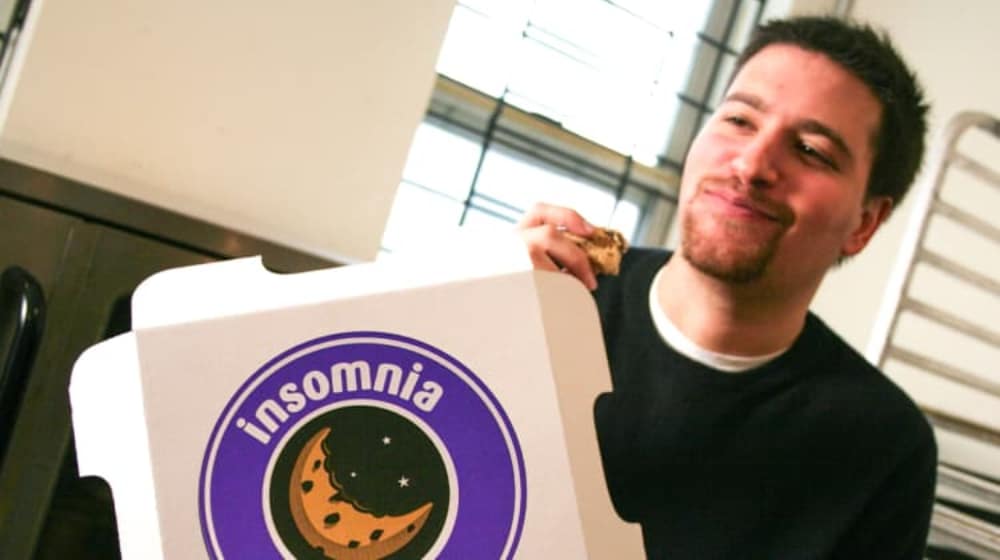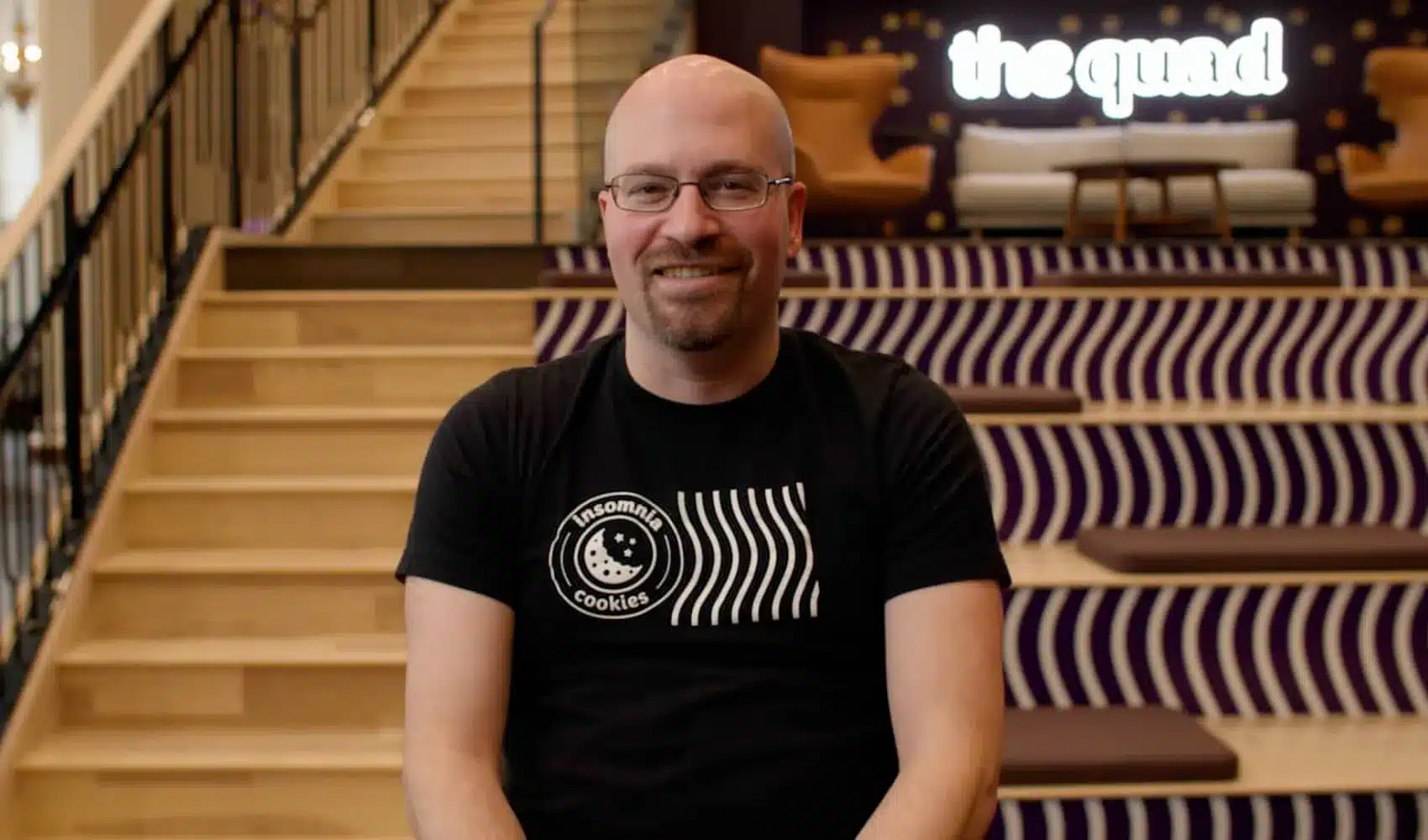Twenty years ago, Seth Berkowitz, then a college student, found himself craving a “warm, delicious treat.”
Fast forward to today, Berkowitz is the CEO of Insomnia Cookies, a company he co-founded during his junior year of college, which has since expanded into a chain with over 260 locations, satisfying that very craving for customers worldwide. Insomnia Cookies was most recently estimated to be valued at under $500 million, following a majority-stake acquisition by Krispy Kreme in 2018.

According to the company, it generated over $200 million in revenue last year. “I simply believed in the allure of a warm cookie,” says Berkowitz, now 43. “It was a craving I experienced, and it became evident that it resonated with others as well.”
Berkowitz initiated Insomnia Cookies at the University of Pennsylvania in 2002, baking cookies in his college residence and delivering them himself around campus during the early morning hours. He recalls making approximately $10,000 in profit within a single semester.
Upon graduating in 2004, Berkowitz secured a lease to establish Insomnia’s first physical location near another college campus in Syracuse, New York, with additional stores soon opening in Champaign, Illinois, and College Park, Maryland.
Before food delivery apps like Grubhub and Uber Eats, college students had few late-night options. Seth Berkowitz grew tired of the same pizza and started baking cookies in his dorm kitchen. His business, Insomnia Cookies, took off after a campus newspaper feature. With a partner, Berkowitz expanded operations, facing challenges along the way.
Berkowitz quickly realized that managing the growth and expansion of a budding national enterprise was significantly more challenging than operating a small-scale venture alongside his college studies.
Initially, as the sole employee of Insomnia, Berkowitz enjoyed the profits generated by the business. However, as the company expanded, the need to hire staff and secure commercial space significantly reduced profit margins.
As a first-time entrepreneur, Berkowitz embarked on a journey of trial and error, experimenting with various business models to restore profitability. Throughout this period, he relied on funding from angel investors to sustain the business. Berkowitz explored options such as ghost kitchens, and licensed frozen yogurt shops, and even introduced vending trucks to diversify revenue streams.
During this challenging phase, Berkowitz’s co-founder, Barnett, parted ways with the company, selling his equity stake to Berkowitz.

Later, Insomnia reached a milestone in 2008 by surpassing $1 million in annual revenue, yet profitability remained elusive. In response, the CEO made a bold cost-cutting move in the subsequent year, streamlining Insomnia’s corporate team to just two individuals: himself and a finance associate.
Once again, Berkowitz found himself shouldering much of the operational responsibilities for Insomnia. He undertook tasks such as traveling from New York to Philadelphia to repair a vending truck’s malfunctioning generator, delivering cookie dough to the Syracuse store every week, and exploring college towns nationwide to identify potential new locations. Berkowitz recalls 2009 and 2010 as particularly challenging years for Insomnia Cookie.
After nearly ten years of experimentation, Berkowitz reverted to a brick-and-mortar business model. He hypothesized that a prominently displayed “really huge sign” in the storefront would generate excitement, while swift deliveries would cultivate repeat patronage.
This strategy, coupled with the introduction of a mobile ordering app, proved successful. Berkowitz recalls that in 2012, for the first time, Insomnia financed a new location solely through its internal cash flow. This milestone was marked by the opening of the 22nd store in Kent, Ohio.
Over the subsequent six years, Insomnia embarked on an ambitious expansion journey, opening 125 new stores, according to Berkowitz. However, the acquisition by Krispy Kreme brought about a new chapter for Insomnia, navigating through the challenges posed by the Covid era. This transition was also marked by co-founder drama, as Barnett filed a lawsuit against Insomnia over the sale, claiming entitlement to a portion of the proceeds.
In January, Berkowitz reportedly agreed to settle the case by paying Barnett $3.5 million, although both parties declined to comment on the lawsuit.
Despite the uncertainties surrounding the potential sale of Insomnia announced by Krispy Kreme last year, Berkowitz remains steadfast in his commitment to growing the brand. Insomnia recently unveiled plans to launch numerous new locations across the United States in 2024.
Reflecting on the brand’s journey, Berkowitz describes Insomnia Cookies as a testament to perseverance. “When I talk about the brand and our journey, I often say that Insomnia Cookies is a perseverance story, right?” he reflects. “There are so many reasons why we shouldn’t be here. And they very much outweigh the fact that we are.”























